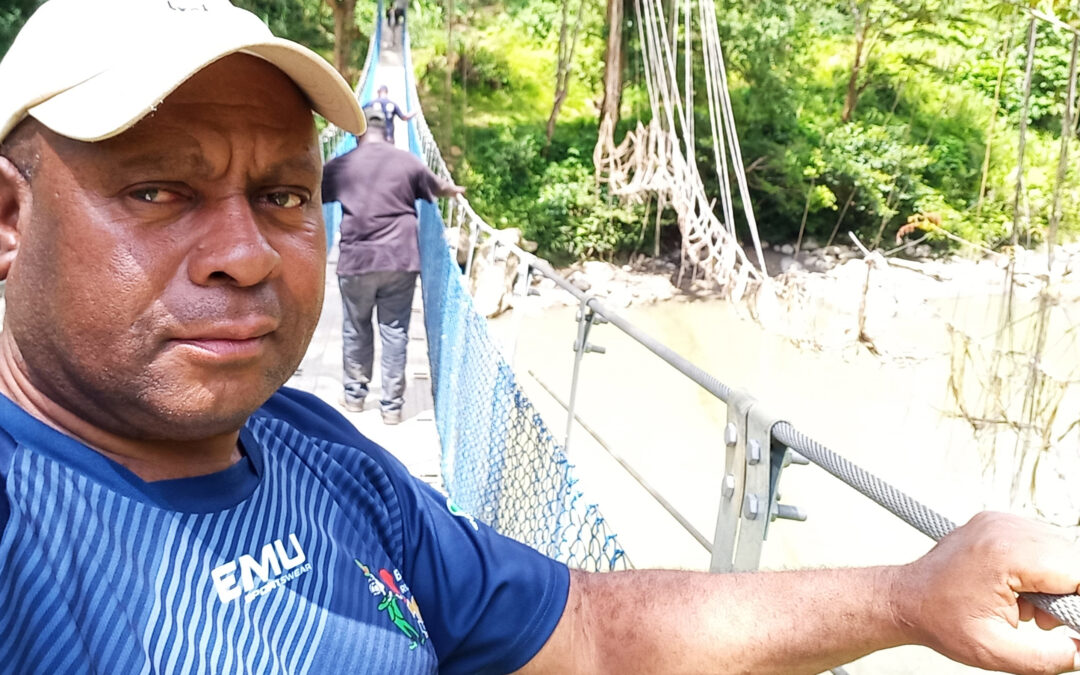Jopok Akepalua dreamed of becoming a priest, but things didn’t work out the way he thought they would. While studying at St Fidelis College, a seminary in Madang, he was called back to his district, Kagua-Erave in the Southern Highlands, to teach grade six due to a shortage of teachers.
Seeing the people in his society affected by violence and tribal fights, Jopok felt compelled to take up studies in law and justice so that he could help his people.
He applied for an Australia Awards Scholarship to study a Bachelor of Justice in Investigations, Policing and Justice Policy at the University of Queensland. “The scholarship is a golden gift from the good citizens of Australia. The taxpayers in Australia are giving us this opportunity,” says Jopok. “If you are thinking of pursuing your studies, apply!”
Looking back on his experiences and how far he has come, Jopok says that two skills he has learned are of the greatest value to him. One is to listen carefully when dealing with offenders and victims of crime. The other is to involve the offenders and victims of crime in the process of finding solutions. “When you do that, they will take ownership and responsibility for fixing their own problems,” he says.
While studying in Australia, he met two Catholic missionaries, a married couple, and spent most of his holidays with them at Carseldine on Brisbane’s Northside. There he took part in outreach programs reaching out to homeless Australian Indigenous people who are often victims of violence and crime.
After completing his studies, Jopok returned to his home province and worked with the Department of Justice as a community corrections officer from 2007 to 2013.The cases of crime that he dealt with each day worried him, as he was limited to writing pre-sentence reports in his role. “I couldn’t do much to help my people,” he says.
One day, he left his paid job and initiated a community-based program where he gathers children and educates them about discipline, law and order, in a society where tribal fighting is unpredictable. He empowers youth and women, especially single mothers and widows, to sustain themselves by providing training such as sewing and agribusiness. “Out of this initiative, five people were successful in starting poultry businesses that are now operating,” he says.
Jopok also mobilized his community to support students who dropped out of school to take up trade skills in a vocational training school. He initiated all these activities to minimize crime in his society.
Jopok then registered his own consultation service, known as Crime Solutions PNG, where he advocates for social justice and criminal compensation. He facilitates negotiations between the victim and the offender while in prison to pay criminal compensation.
His experience taught him lessons about the causes of crime. “Kids end up stealing when they don’t have parents or caregivers,” he says. “Children growing up in settlements steal because they want to survive.” He says that in some cases he has seen women killing their husbands for not providing food or having relationships with other women.
Jopok was recognized for his community initiatives and his consultation service and was appointed as the Coordinator for Law and Justice in Kagua-Erave district.

